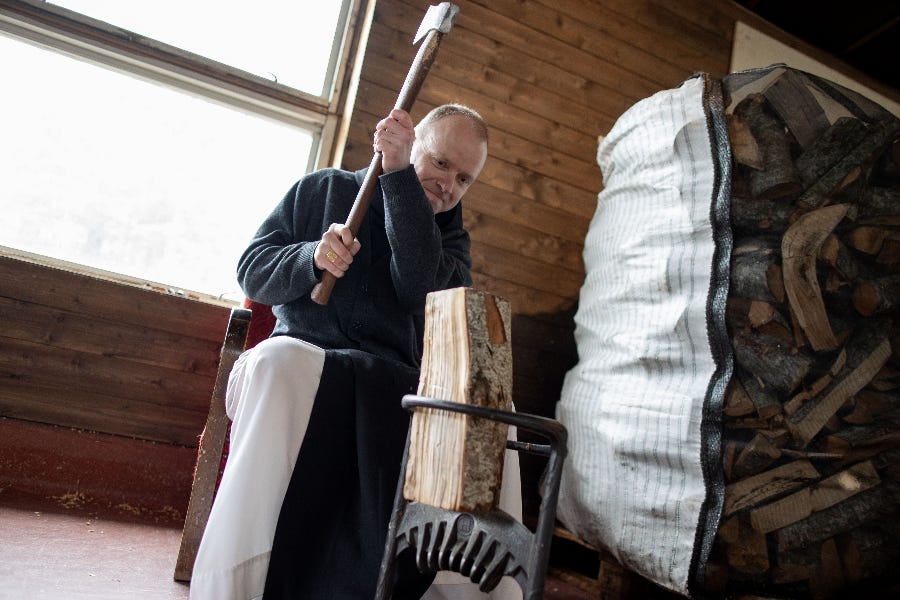The Holy See press office announced Wednesday that Alessandro Cassinis Righini has been appointed by Pope Francis the Vatican’s new auditor general. Righini has been doing the job, on an interim basis, since 2017.
The confirmation of a Vatican official in a role he has already held for four years might seem like a bit of overdue housekeeping. But Righini’s confirmation in the role is more than that.
The appointment is the latest in a series of recent moves by Pope Francis which appear aimed at supercharging the pope’s once-stalled financial reform program ahead of a crucial report from Moneyval, which is due to be released imminently.
Confirmation of Righini as the permanent auditor general comes less than a week after a spate of changes to Vatican financial laws. Those changes seem to respond to the financial scandal which followed the 2017 firing of the last Vatican auditor, Libero Milone.
Milone, the first person to hold the role, was forced out of his job under threat of prosecution by the now disgraced Cardinal Angelo Becciu. Becciu said at the time that the auditor “went against all the rules and was spying on the private lives of his superiors and staff, including me.”
“If he had not agreed to resign, we would have prosecuted him,” Becciu said.
Milone’s exit was accompanied by reports that he was himself being spied on, that the office of the Auditor General had been bugged, its phone lines tapped, and its computers hacked.
Milone said at the time that he had been forced out because he was getting too close to uncovering financial misconduct in the Vatican, including at the Secretariat of State, and that he’d been unable to get past Becciu, then sostituto and effective papal chief of staff, to brief the pope on what he had found.
Milone’s departure was coincidental with Cardinal George Pell’s forced leave of absence from his role as head of the Secretariat for the Economy to return to Australia, where the cardinal spent more than a year in prison on charges of sexual abuse from which he was ultimately exonerated.
The combined absence of Milone and Pell was widely credited within the Vatican with bringing Francis’ financial reforming agenda to a grinding halt.
Pope Francis, for his part, appeared quietly to stand behind Pell during his legal ordeal in Australia, but was less sympathetic to Milone, perhaps because the pope was at that time quite close to Becciu.
In his 2017 address to the curia, Pope Francis made a thinly veiled reference to the auditor’s sacking when he referenced “persons carefully selected to give a greater vigour to the body and to the reform, but – failing to understand the lofty nature of their responsibility – let themselves be corrupted by ambition or vainglory.”
In case anyone missed the reference, Francis continued: “Then, when they are quietly sidelined, they wrongly declare themselves martyrs of the system, of a ‘Pope kept in the dark,’ of the ‘old guard’…, rather than reciting a mea culpa.”
Since then, history has tended to vindicate Milone.
After years of media attention to he Secretariat of State’s financial transactions, several of which appear to violate at least the Vatican’s own internal financial regulations, and a now sprawling investigation by Vatican prosecutors, Becciu was summarily forced to resign by Francis in September last year.
Some noted that the pope was handling Becciu in a manner not unlike Becciu’s own treatment of the former auditor general.
Milone himself has remained relatively out of the spotlight since his forced departure, citing non-disclosure agreements he was made to sign by the Vatican as part of the terms of his exit. But last week he re emerged to, among other things, confirm reports that his office and the Secretariat of the Economy had become aware of the questionable investments at the heart of the current scandals in 2016 and were stone-walled by the Secretariat of State.
If prosecutors manage to make that case stick, it could lead to charges being brought against senior curial officials, including cardinals like Becciu and Cardinal Pietro Parolin, the current Secretary of State — something made much more workable following a change to the law last Friday which now allows cardinals to be charged in the same Vatican City court as lay people.
Righini, Milone’s former and deputy now successor, will also likely be revisiting some of his former boss’s more controversial work.
When the office was first set up as part of Francis’ big push for curial reform, the auditor general was given, according to its statutes, “full autonomy and independence” in its work, including the power to “receive and investigate any reports on anomalous activities” within the curia.
While Milone was dismissed and threatened with prosecution for “spying” on the private financial affairs of Becciu and other curial officials, many of whom would appear to invite scrutiny, his successor now has a legal mandate to do just that.
Last Thursday, Francis issued a new law which requires comprehensive financial self-disclosures by Vatican officials, and criminalizes the bustarella culture of cash gift-giving. The new laws include comprehensive norms related to prohibited financial dealings by curial officials, even to the point of banning family members from acting as proxies for suspect investments.
Key among the reforms is the power to investigate the “veracity” of financial self-disclosures if the Secretariat for the Economy has reason to believe there may be omissions or misrepresentations. In short, Righini now has a mandate to do exactly the kind of personal auditing which got his predecessor fired in the first place.
As with so much in Francis’ long-running bid to bring transparency and accountability to the Vatican’s finances, everything old is new again.




